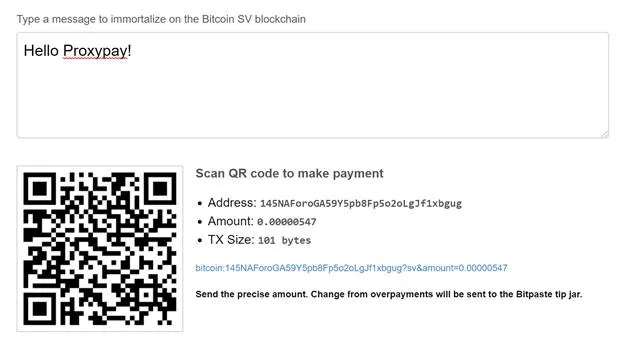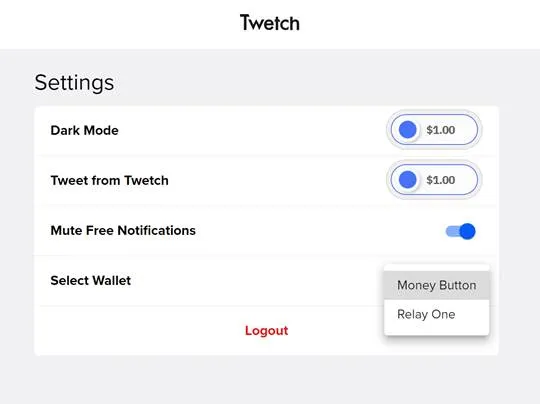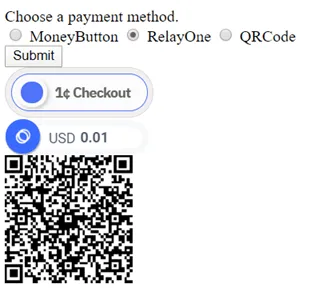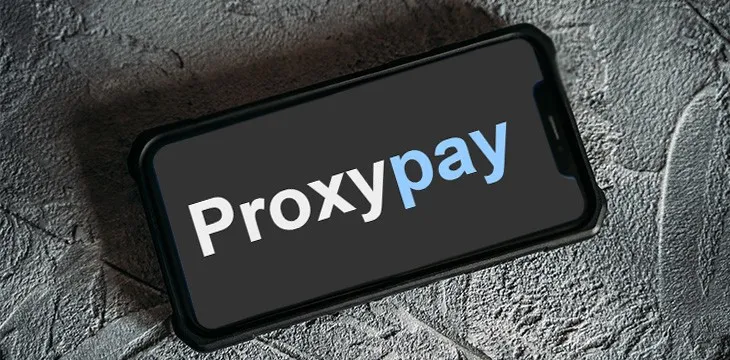|
Getting your Trinity Audio player ready...
|
A not so well-known developer tool has been out for some time now named Proxypay. Developed by libitx, creator of bitpaste.app and Operate, this tool has somehow flown under the radar for months.
How does it work?
Proxypay enables a website to accept payments from any wallet by creating an ephemeral private key that gets funded with just enough satoshis to pay for the transaction costs and any outputs necessary.
Users can click a link that opens their wallet (if they have one installed) or pay via a QR code that has a payment request embedded. Once the user pays the funding request, a second transaction is immediately broadcast with the actual transaction details, draining the private key’s funds and negating the opportunity for a hack.

The tool also supports complex transaction types, so data can be added to the transactions via an OP_RETURN output and/or have multiple outputs, paying multiple parties. With many BSV wallets available, having options to pay for goods and services is ideal compared to only accepting one method of payment.
Does Amazon only accept Visa credit cards?
The on-boarding problem
Most BSV services implement Money Button and only Money Button because it is easy, non-custodial and you immediately have (as of writing this article) access to ~15,000 potential users. While this is understandable from the service provider’s perspective this situation presents a hurdle to on-boarding users as they must sign up for a Money Button account first.
https://www.youtube.com/watch?v=5ja653_UzJY
Additionally, supporting only a single method of payment means potentially a single point of failure. Twetch for example has been at the mercy of Money Button performance issues several times and as a result has since implemented RelayOne, a competing button-like payment solution.

Sometimes more is better
As far as I know, Proxypay has not been implemented in any BSV service. I have touched on before about how competition between wallets is good. Providing options to the user is a great thing—not only does it give them an opportunity to pay with any wallet they choose, but creates an environment where wallets more openly compete.
Payment options we should have available on Bitcoin SV services:

With all this stated, Proxypay is not a panacea—it does have drawbacks such as broadcasting two transactions instead of one, and the service must handle the case in which the second transaction broadcast fails. However just like many concepts in Bitcoin, this is an economic issue.
The streamlined implementation of the tool granting user access to payment methods such as HandCash, Cashpay, SimplyCash and Centbee may be more than worth the cost of also handling nuanced edge cases.
Bitcoin is competitive
For example, another reason Twetch implemented RelayOne was because at the time, it had a faster swipe than Money Button. In quick response, Money Button then increased the speed of their swipe to match. Without competition, there is no incentive for services to improve.
https://twitter.com/MADinMelbourne/status/1168059620444622848?s=20
With Genesis fast approaching, services still running the node software need to prepare for a potential increased wave of transactions and have a plan to deal with complex scripts. I have also wrote about in the past how they deal with this issue by avoiding the problem completely. With the recent price rise and influx of new users, the network needs to be able to support the growth in demand.
For a service, any edge they can gain over their peers is a plus. Bitcoin is competitive.
A service that implements something like Proxypay not only gives them a leg up on their competitors but increases the competition between other services they use (wallets) which has a stacked benefit of potentially increasing the value the service gets out of those wallets!
Of course, this is all possible because these services are all built on a single, global, public network, which is Bitcoin SV.

 07-03-2025
07-03-2025 





